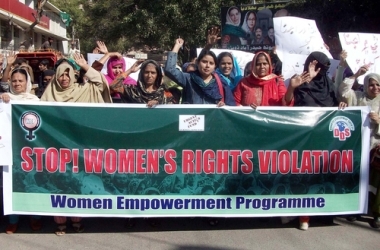Most countries that make up the African continent have many similarities with Brazil. First, the natural aspects of both have in common the presence of extensive forested areas, such as the Brazilian Amazon and the Congo Equatorial Forest. The two largest rivers in the world in terms of water volume are located in their territories, the Amazon River and the Congo River, respectively. Another common point is the huge ranges of tropical climate covered by sparse vegetation, known as Savanas, in Africa, and Cerrado, in Brazil. In English-language literature, the Cerrado is known as brazilian savanna, that is, the Brazilian Savannah.
Regarding the human aspects in common, we can highlight the occupation process carried out by the Europeans, based on the exploitation and plunder of natural resources, a period known as Colonialism. The European occupation favored the production of raw materials and introduced the predatory character of several activities related to the primary sector, such as logging and monocultures of tropical products, also known as
plantations. Exploitative colonization delayed the industrialization of occupied countries and contributed to the economic and social underdevelopment, characteristics that are shared between Brazil and all African countries.Also during the colonization process, another element began to bring Africa closer to Brazil: the slavery of the black population. The compulsory migration of people from black African ethnic groups to Brazil brought about 4 million slave workers to the country, who were mainly employed in activities linked to economic cycles, such as sugarcane in the Northeast and mining and coffee in the Southeast. Currently, the African influence in our society in culture in general is notorious, as in the elements incorporated by the Portuguese language, toponymy, eating habits and religious beliefs.
Do not stop now... There's more after the advertising ;)
Africa also went through a process called neocolonialism, when European interests focused on the production of raw materials with an emphasis on the demands of the Industrial Revolution, which forced countries in the process of industrialization to seek greater supplies of minerals and energy sources, such as iron ore and coal mineral. Such interests turned African countries into a kind of business counter for European powers, which ended up being formalized from the Berlin Conference, between the years 1884 and 1885, an agreement that defined the limits of European possessions in the Africa.
While Africa began neocolonialism, Brazil was already experiencing political independence. Even so, the Brazilian economy maintained its primary base, like the African one, with coffee production – a tropical product originating in the continent African - the main economic activity and attraction of immigrants to Brazil until the period corresponding to the two great wars, at the beginning of the 20th century. Nowadays, primary activities such as agriculture and livestock and plant and mineral extraction continue to represent the mainstay of the economy of underdeveloped African countries. Even though Brazil is an industrialized country, soy and iron ore production correspond to the main products in the Brazilian export basket.
Julio César Lázaro da Silva
Brazil School Collaborator
Graduated in Geography from Universidade Estadual Paulista - UNESP
Master in Human Geography from Universidade Estadual Paulista - UNESP
Would you like to reference this text in a school or academic work? Look:
SILVA, Julius César Lázaro da. "Relations between Brazil and Africa"; Brazil School. Available in: https://brasilescola.uol.com.br/geografia/relacoes-entre-brasil-Africa.htm. Accessed on June 29, 2021.


